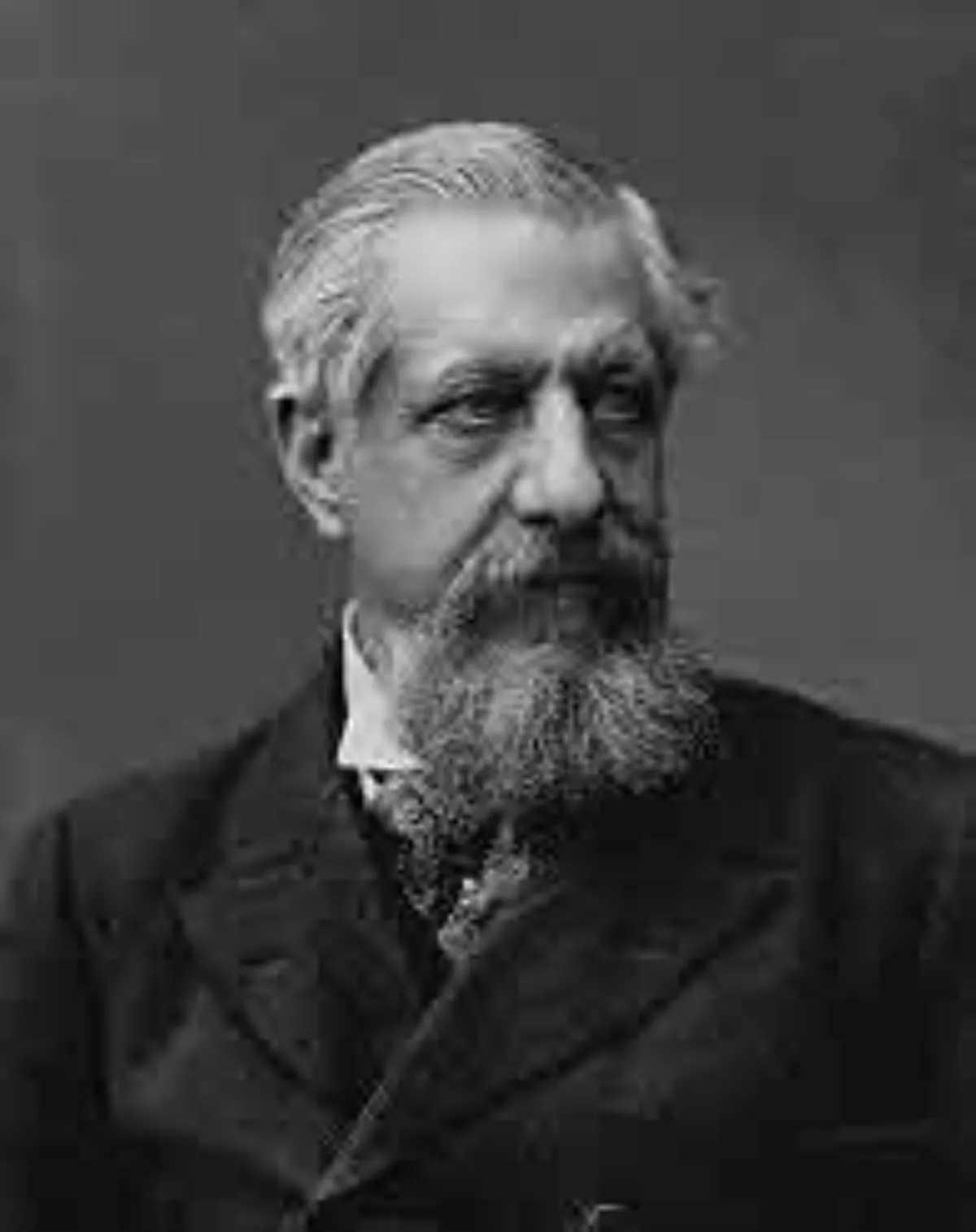 1.
1. Edwin Arnold is best known for his 1879 work, The Light of Asia.

 1.
1. Edwin Arnold is best known for his 1879 work, The Light of Asia.
Edwin Arnold was born at Gravesend, Kent, the second son of a Sussex magistrate, Robert Coles Edwin Arnold.
Edwin Arnold grew up at Southchurch Wick, a farm in Southchurch, Essex, and was educated at King's School, Rochester; King's College London; and University College, Oxford, where he won the Newdigate prize for poetry on the subject of "The Feast of Belshazzar" in 1852.
Edwin Arnold became a schoolmaster, at King Edward's School, Birmingham, and in 1856 went to India as Principal of the Deccan College at Poona, a post which he held for seven years, which includes a period during the mutiny of 1857, when he was able to render services for which he was publicly thanked by Lord Elphinstone in the Bombay Council.
Edwin Arnold must be credited with the first idea of a great trunk line traversing the entire African continent, for in 1874 he first employed the phrase "Cape to Cairo railway" subsequently popularised by Cecil Rhodes.
In "The Song Celestial" Sir Edwin Arnold produced a well-known poetic rendering of the sacred Hindu scripture Bhagavad Gita.
Edwin Arnold was appointed CSI on the occasion of the proclamation of Queen Victoria as Empress of India in 1877, and was knighted in 1888.
Edwin Arnold was honoured with decorations by the rulers of Japan, Persia, Turkey and Siam.
One of his six children was the novelist Edwin Lester Arnold, born in 1857.
Edwin Arnold was a founder member, together with Anagarika Dharmapala, of the Mahabodhi Society of India and was a close associate of Weligama Sri Sumangala.
Edwin Arnold was vice-president of the West London Food Reform Society, a vegetarian group based in Bayswater, founded in 1891, with Josiah Oldfield as president and Mahatma Gandhi as secretary.
Edwin Arnold served as vice-president of the London Vegetarian Society, after being invited by Gandhi.